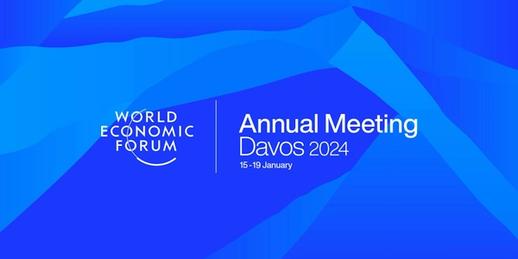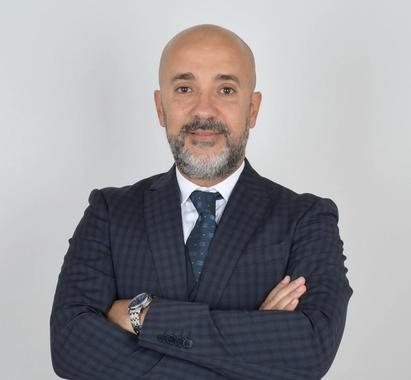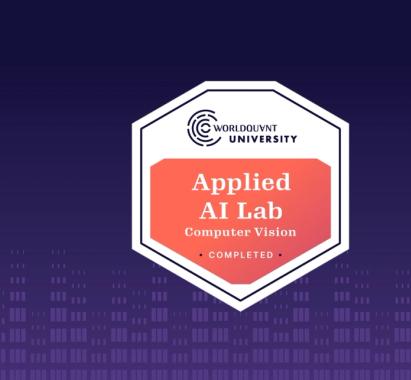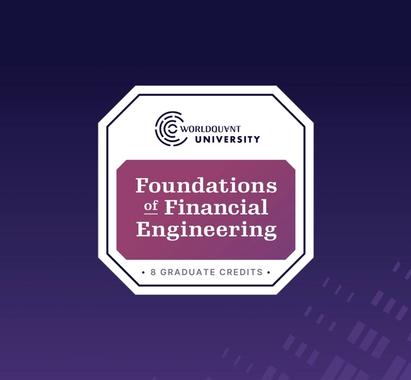Workplace Flexibility and Upskilling the Future Workforce at the World Economic Forum

In January, WorldQuant University President Daphne Kis attended the World Economic Forum’s annual meeting in Davos. During the event, Kis returned to the Equality Lounge®, where she joined The Female Quotient’s panel Redefining the Future of Flexible Work. For this conversation, Kis joined Melissa Furze, VP, Customer Science & Global Head at B2Bi, LinkedIn; Gabriella Rosen Kellerman MD, Chief Innovation Officer, BetterUp, and Valérie Beaulieu-James, Chief Sales & Marketing Officer, The Adecco Group.
The group discussed trends in workplace flexibility and growing expectations for workers to have a say in their hours, location, and time off. Kis highlighted the importance of creating boundaries around work/life balance as we move toward a future in which collaborative working environments are more important than ever. Kis urged the audience to consider that the need for flexibility has always been pressing, and that as workplaces are catching up to address the issue, they do so transparently and with urgency.
The COVID-19 shutdown and requisite move to remote work forced employers to reconsider long-held guidelines, and standards for working outside the office have changed significantly. In the past year, return-to-office mandates have been issued by many major corporations. According to studies conducted by Better Up, those mandates have led to a marked decline in employee productivity and sense of autonomy. Dr. Kellerman reported that hybrid systems are more successful models right now, but as the world continues to experiment with different types of flexibility, there will be more understanding about what types of work are best done in the office (like collaborative work), and which types of work are best done remotely.
Beaulieu-James made the point that the current understanding of true flexibility is limited to office workers, who make up only about 30% of the total workforce. She encouraged employers to consider nurses, servers, and other workers who typically need to work outside the home. Dr. Kellerman added that when employers listen to and trust the feedback from their workers, it’s easy to start with transparent, simple policies that address the flexibility needs of everyone.
President Kis’ second panel was hosted by David Fergusson of CNBC Catalyst. AI Transforming Work: Skills-Based Education for an Inclusive and Advanced Workforce’s panelists included Daphne Kis, Gina Mastantuono, CFO of ServiceNow, and Svenja Gudell, Chief Economist at Indeed.
The panelists discussed opportunities and risks associated with AI’s emergence in the traditional workplace and the growing demand for STEM jobs. Skills-first hiring was top of mind for all panelists. Kis predicted that the next five years will bring about a moment of convergence for higher education — one in which students use AI to learn while educators use it to create curriculum and materials that can keep up with the pace of the workforce’s evolving needs. She believes that with the help of AI, educators will be better able to quickly build and deliver robust undergraduate and postgraduate programming that support the needs of new students as well as lifelong learners who want to stay competitive and enhance their capabilities.
Indeed’s Chief Economist Svenja Gudell agreed that the future of AI in the workforce is multifaceted. She notes that there is no coming singularity — rather, human ingenuity will always be necessary for progress. Instead, according to Indeed’s Hiring Lab research, almost every job in the near future will be augmented by GenAI, but no single job will be completely wiped out. GenAI will certainly automate certain tasks within a role, but the human potential to innovate, create, and think critically will be more important than ever. Like Kis, Gudell stressed that people must first feel empowered to use AI as a tool.
That empowerment requires ongoing training at every level. Gina Mastantuono, CFO of ServiceNow, reported that ServiceNow is leaning into GenAI as a tool to help people train for the future tech workforce. Mastantuono and her team see AI as the great democratizer of the workforce — anyone can learn to use it. ServiceNow is connecting people who want to take on tech careers to the kinds of training they need to succeed. They don’t have to have STEM backgrounds to learn how to code and utilize GenAI in effective ways.
Ultimately, the Davos discussions remind us that as technology reshapes our professional spheres, the focus must remain on human agency, adaptability, and continuous learning. Only by prioritizing inclusivity, upskilling, and a balanced approach to AI can we build a future of work that benefits everyone.



